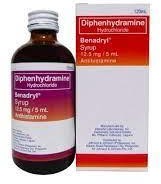Exhibits
A nurse in an emergency department is caring for a 3-month-old infant. Which of the following actions should the nurse take?
Administer ceftriaxone.
Administer pneumococcal conjugate vaccine.
Initiate serum glucose testing every 1 hr.
Initiate neutropenic precautions.
The Correct Answer is A
A. Given the cloudy appearance of the cerebrospinal fluid (CSF) and elevated white blood cell count (WBC) in the CSF, there may be an indication of meningitis.
Ceftriaxone is a broad-spectrum antibiotic commonly used to treat bacterial meningitis. Therefore, administering ceftriaxone would be an appropriate action.
B. While vaccines are important for preventing infections, administering the pneumococcal conjugate vaccine is not the immediate priority in this scenario. The patient is already exhibiting signs of a potential infection, and treatment should focus on addressing the current condition first.
C. The infant's serum glucose level is low at 64 mg/dL (normal range: 60 to 100 mg/dL).
However, the primary concern at this moment appears to be the potential bacterial meningitis indicated by the cloudy CSF, elevated WBC count, and abnormal CSF glucose level. While monitoring serum glucose is important, it is not the most critical action in this case.
D. Neutropenic precautions are typically implemented to protect patients with low neutrophil counts (neutropenia) from acquiring infections. However, there is no indication of neutropenia in the provided diagnostic results. Additionally, the cloudy CSF and elevated WBC count suggest a possible bacterial infection rather than a neutropenic condition.
Nursing Test Bank
Naxlex Comprehensive Predictor Exams
Related Questions
Correct Answer is A
Explanation
Rationale:
A. Assessing the risk of self-harm or suicide is the top priority when caring for a patient with major depressive disorder. It allows the nurse to intervene immediately if there's a risk of harm.
B. While group therapy can be beneficial for individuals with depression, it's not the first priority when assessing for safety concerns.
C. Administering antidepressants may be part of the treatment plan, but it's essential to assess the immediate risk of self-harm before proceeding with medication administration.
D. Assisting with activities of daily living is important, but it's not the first action to take when assessing for safety in a patient with major depressive disorder.
Correct Answer is ["0.6"]
Explanation
Rationale:
First, we need to convert the child's weight from pounds to kilograms. We can do this by dividing 55 by 2.2, which gives us 25 kg.
Next, we need to multiply the dose of diphenhydramine by the child's weight to get the total amount of medication needed. We can do this by multiplying 1.25 mg/kg by 25 kg, which gives us 31.25 mg.
Finally, we need to divide the total amount of medication by the concentration of the solution to get the volume to be administered. We can do this by dividing 31.25 mg by 50 mg/mL, which gives us 0.625 mL.
To round the answer to the nearest tenth, we look at the hundredths place and see that it is 5 or more, so we round up the tenths place by one. Therefore, the nurse should administer 0.6 mL of diphenhydramine IV to the child.
 |
Whether you are a student looking to ace your exams or a practicing nurse seeking to enhance your expertise , our nursing education contents will empower you with the confidence and competence to make a difference in the lives of patients and become a respected leader in the healthcare field.
Visit Naxlex, invest in your future and unlock endless possibilities with our unparalleled nursing education contents today
Report Wrong Answer on the Current Question
Do you disagree with the answer? If yes, what is your expected answer? Explain.
Kindly be descriptive with the issue you are facing.
